Abyssinia, 1867–1868: Artists on Campaign. Watercolors and Drawings from The British Expedition under Sir Robert Napier.
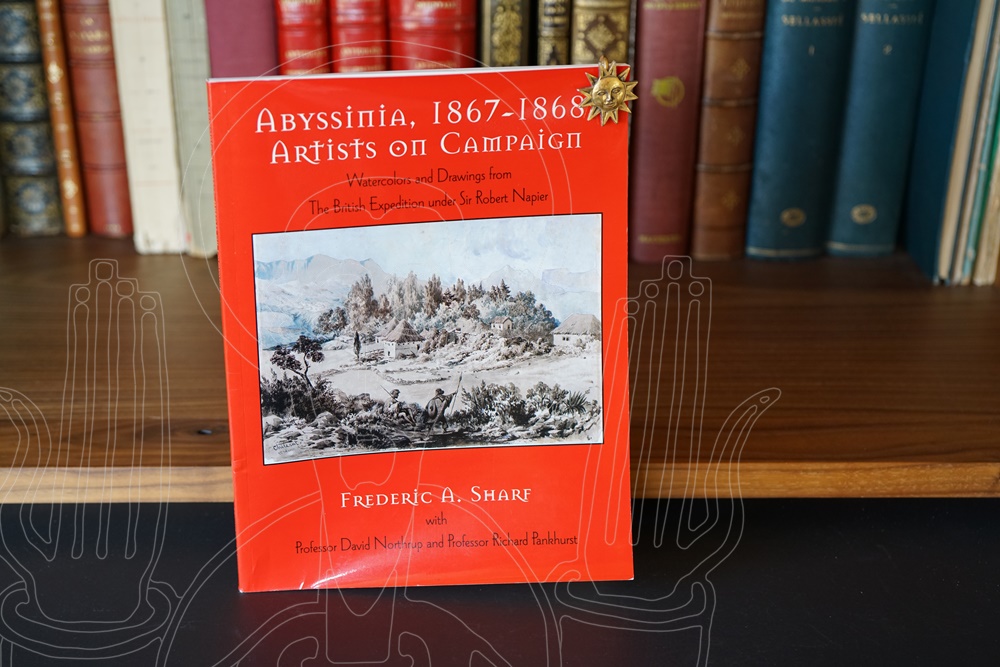

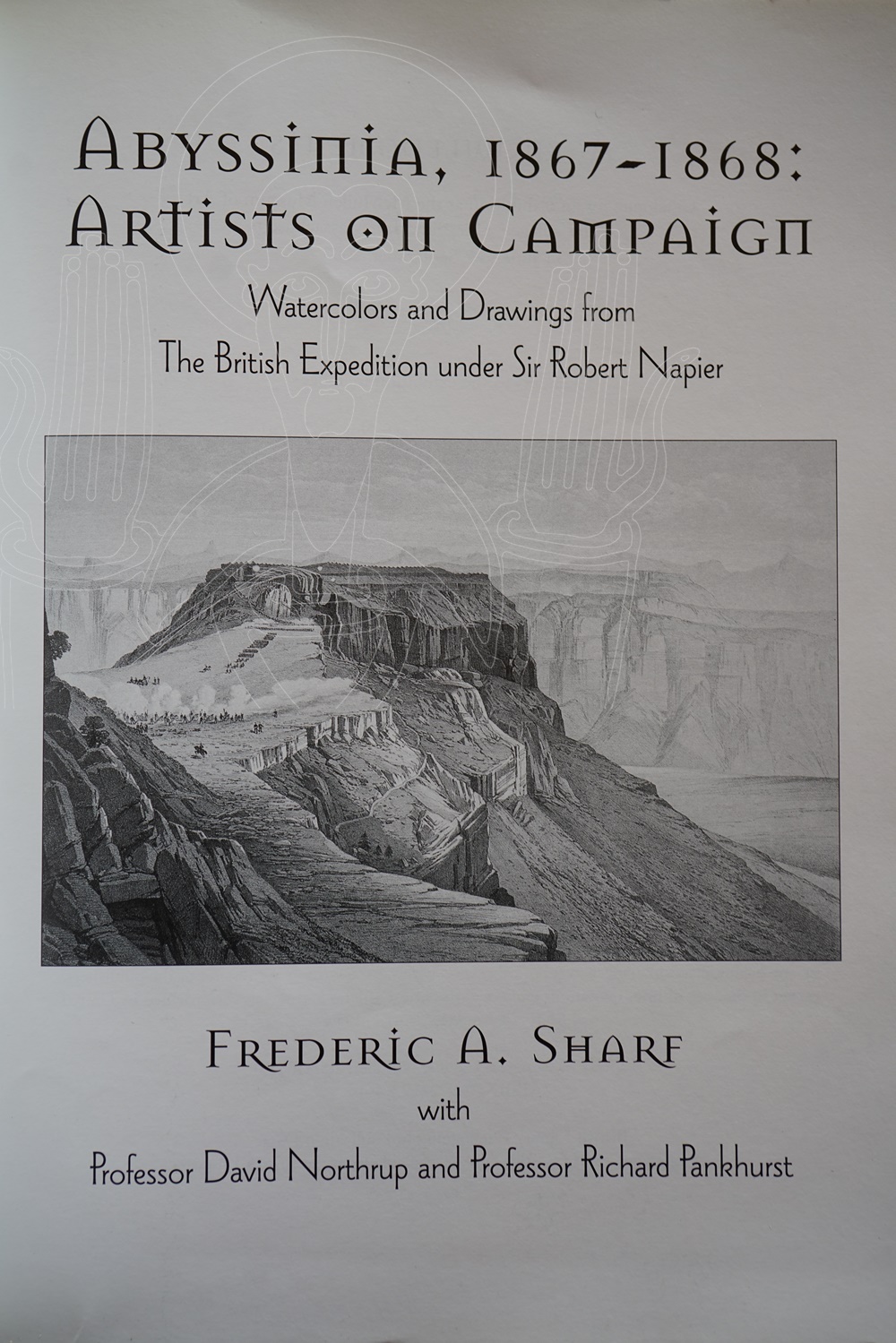
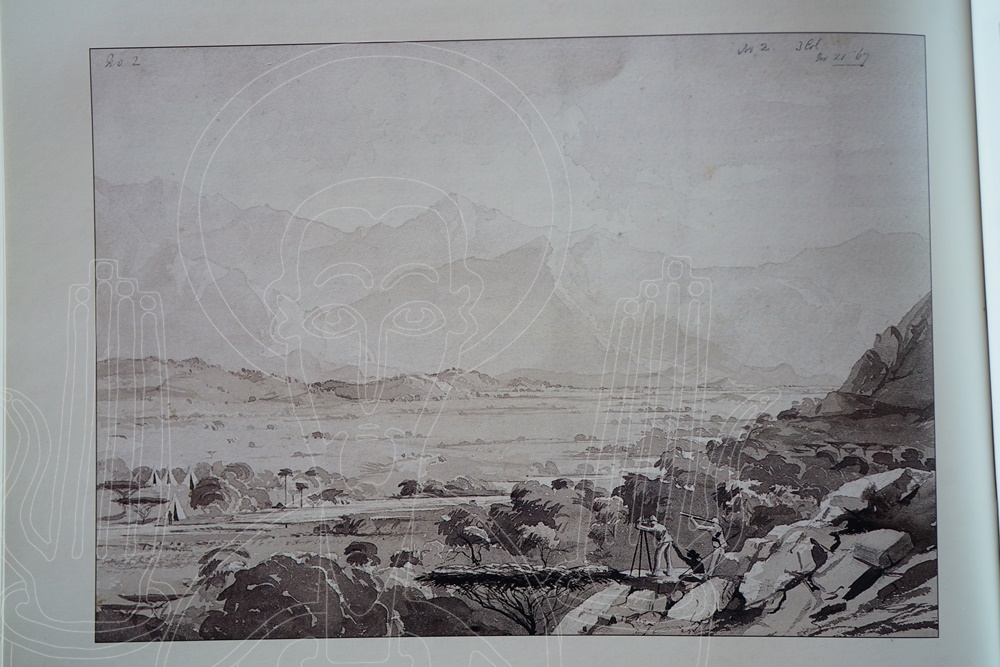
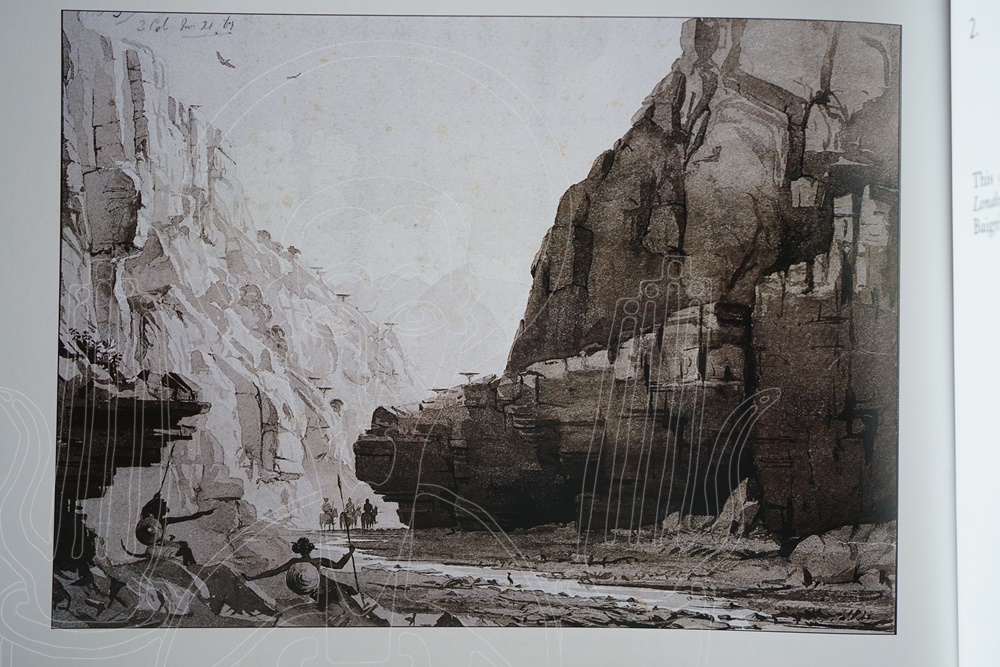
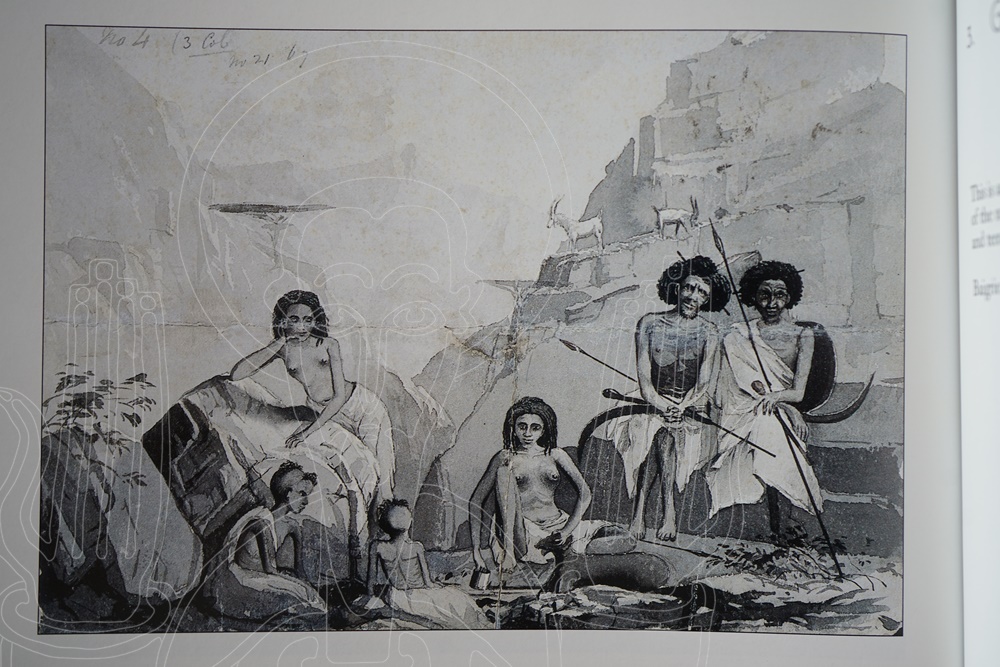
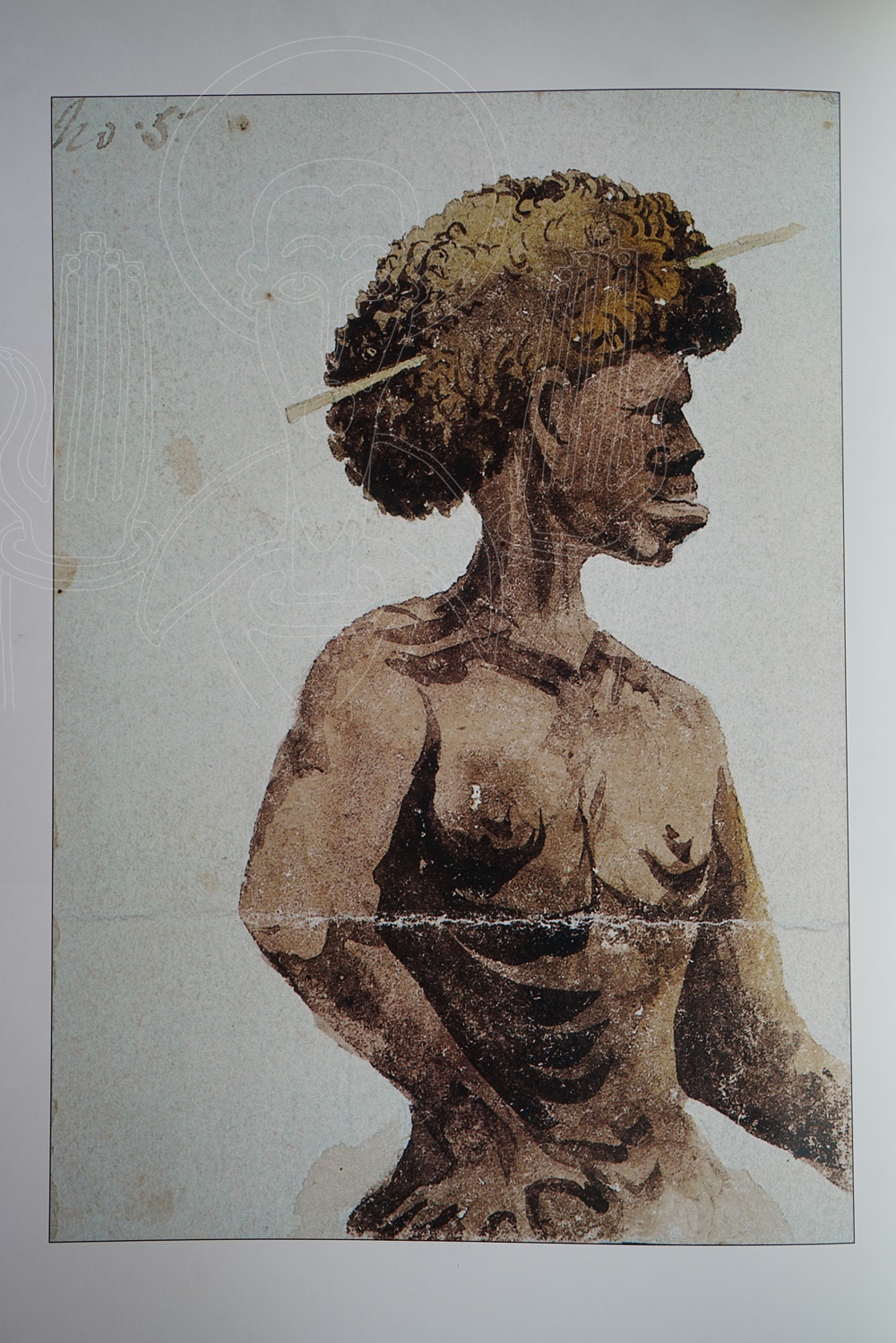
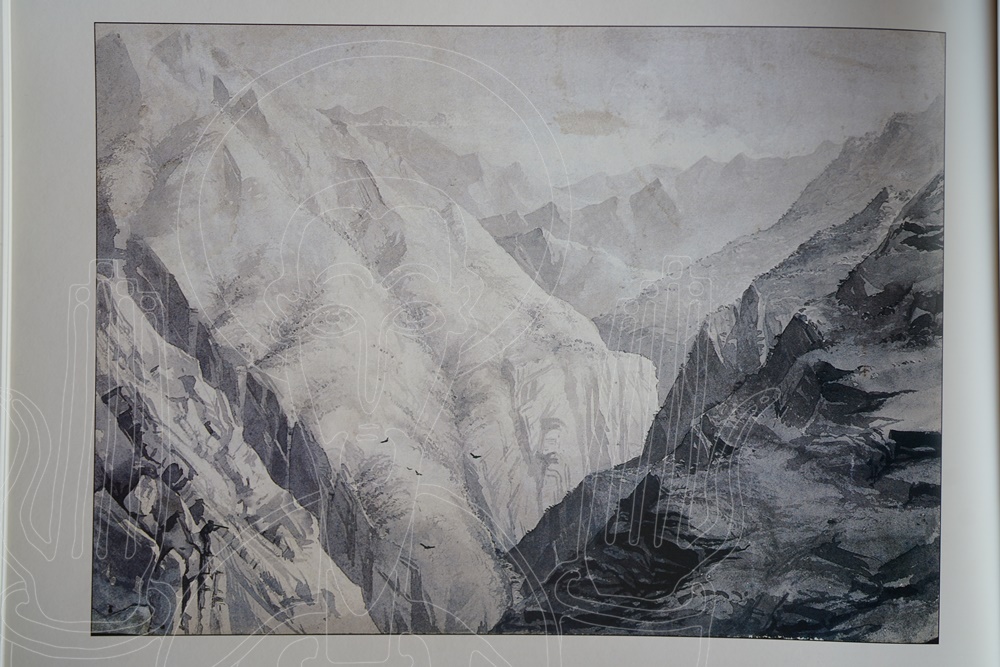
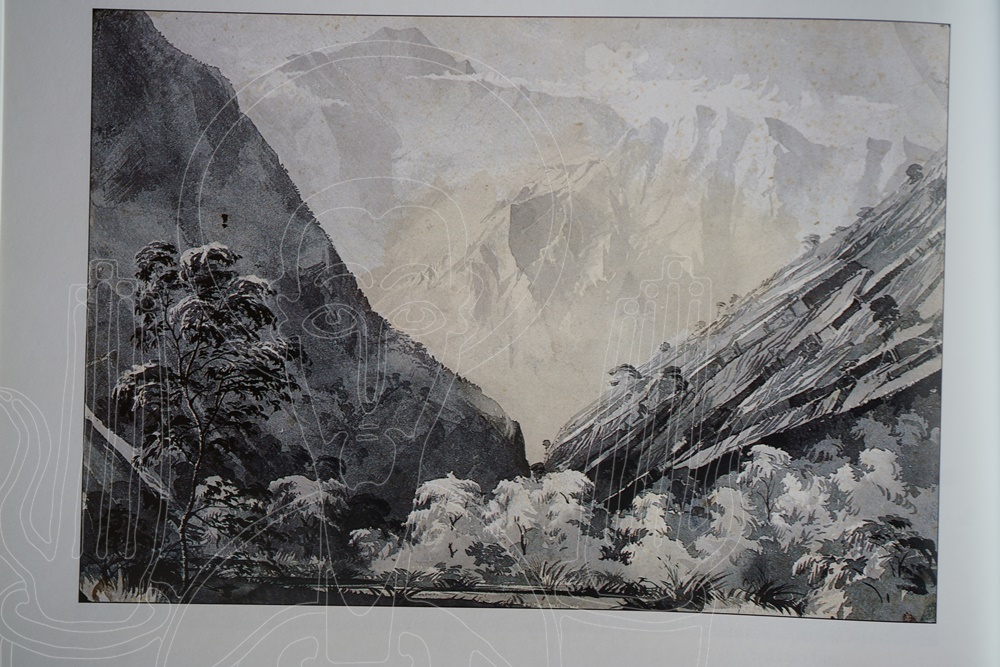
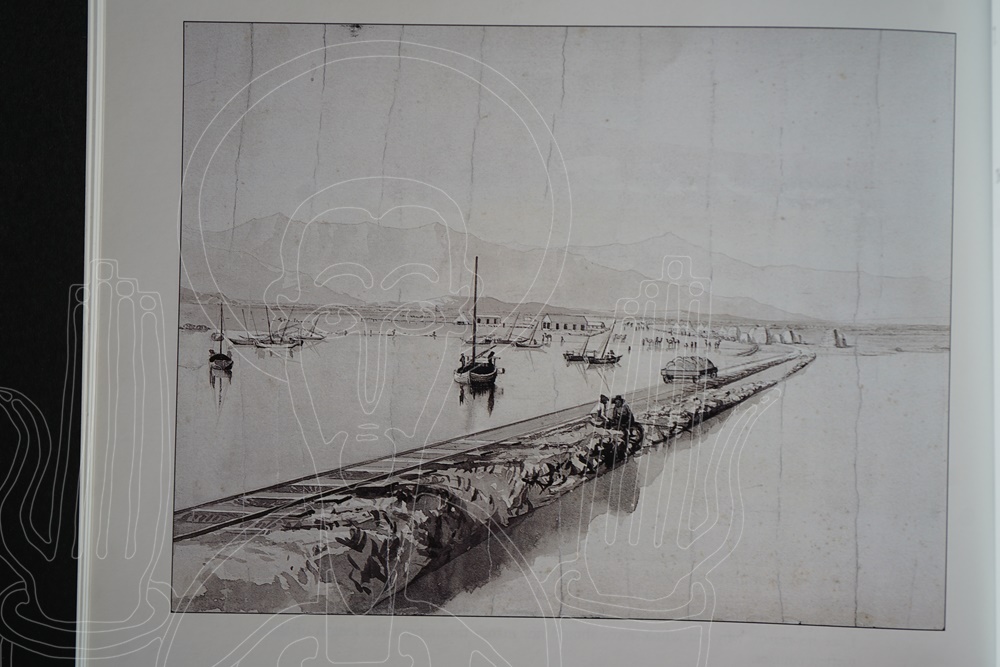
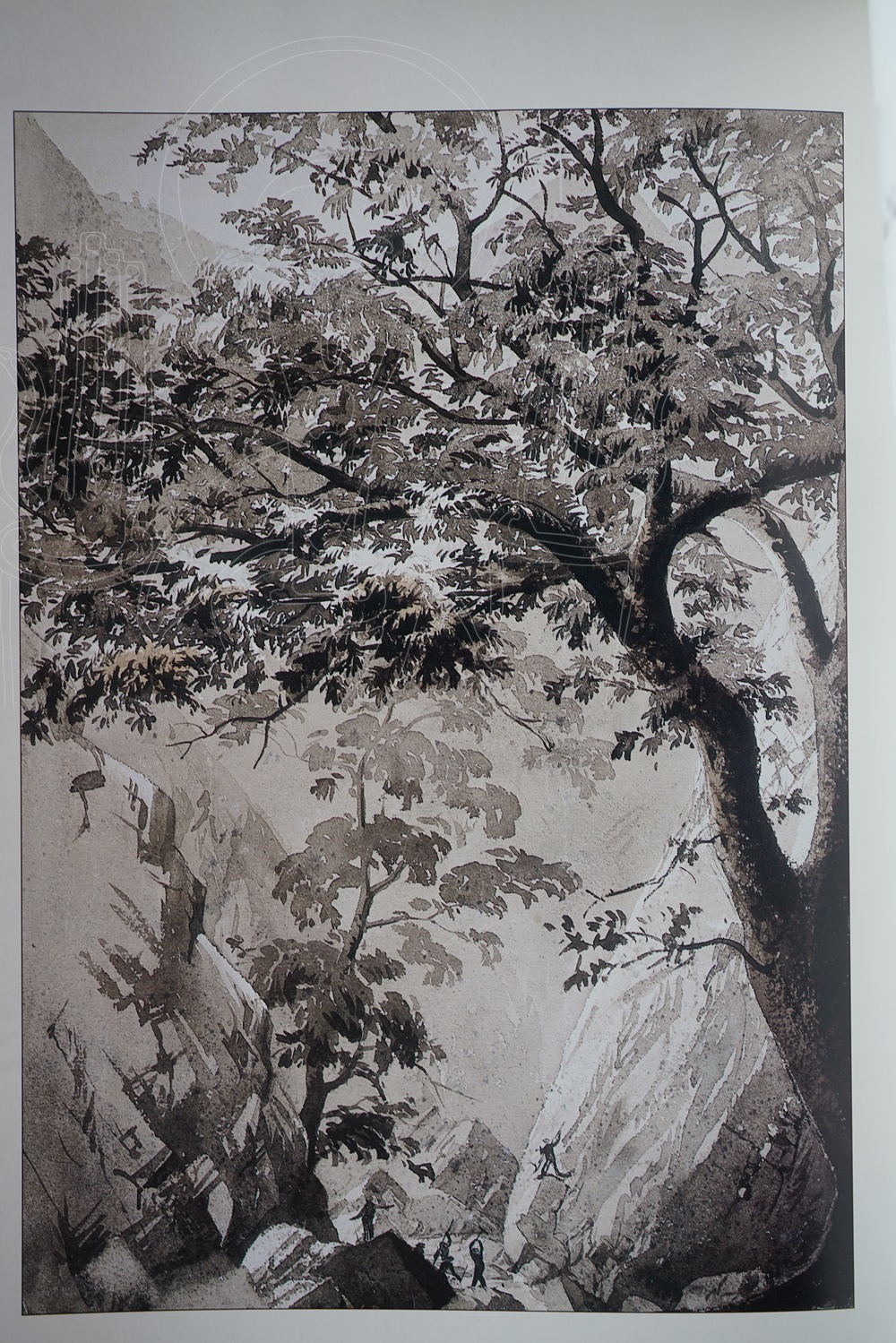
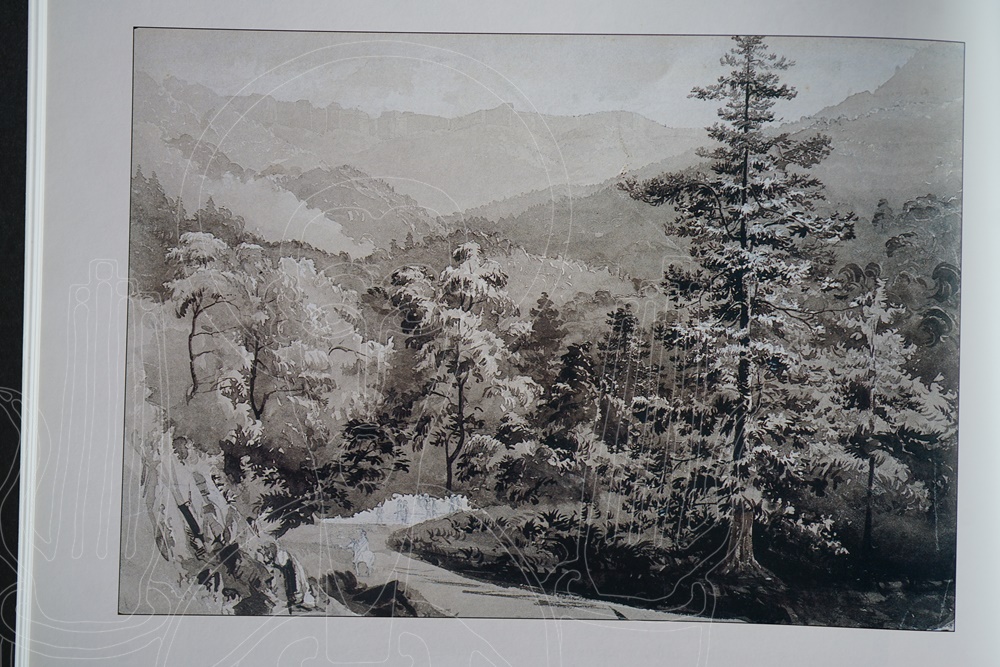
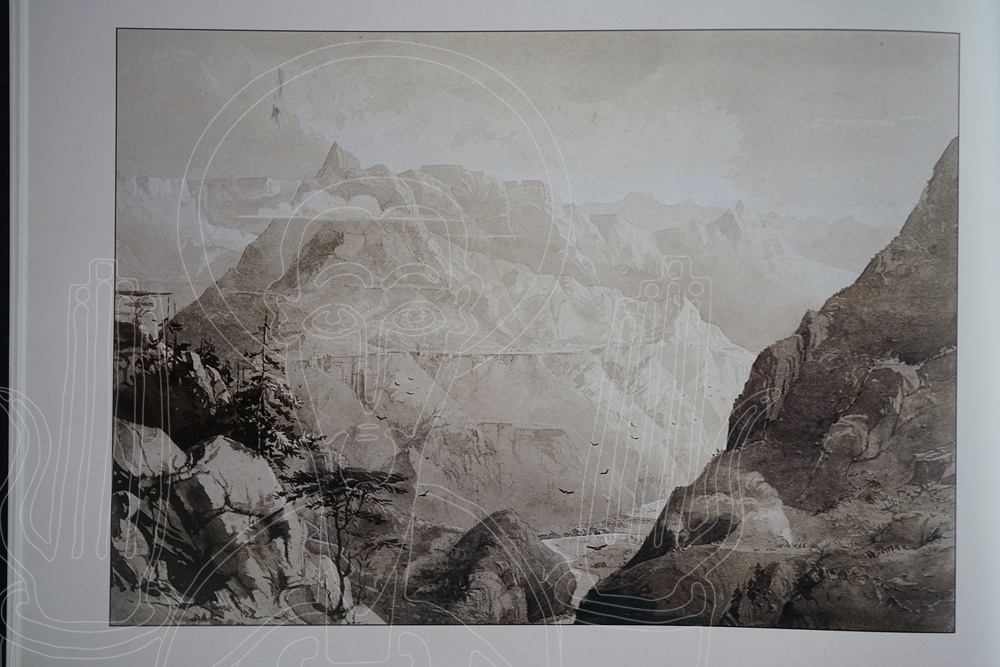
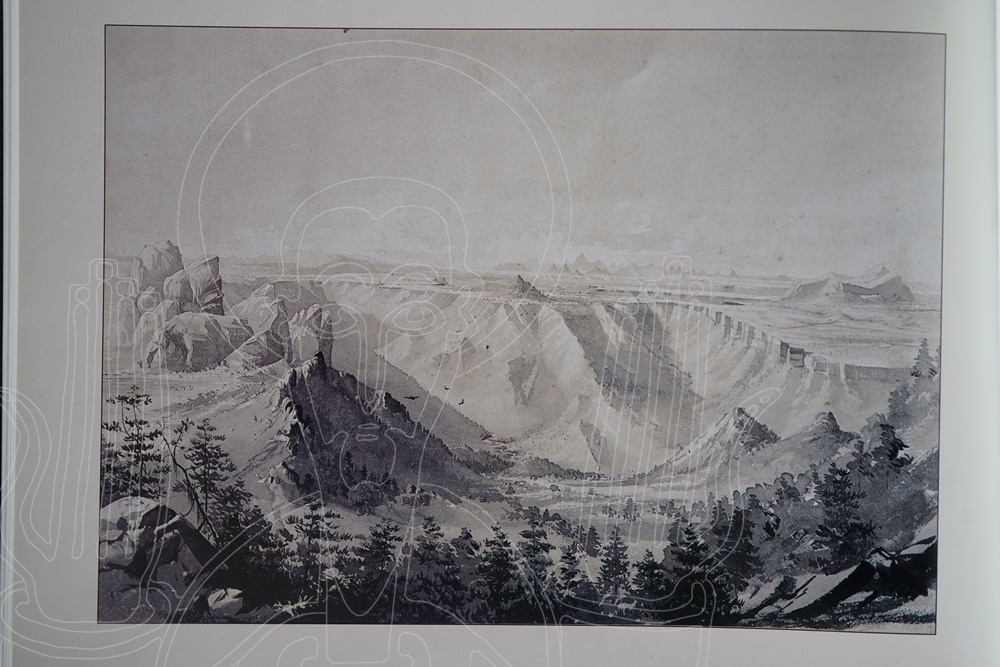
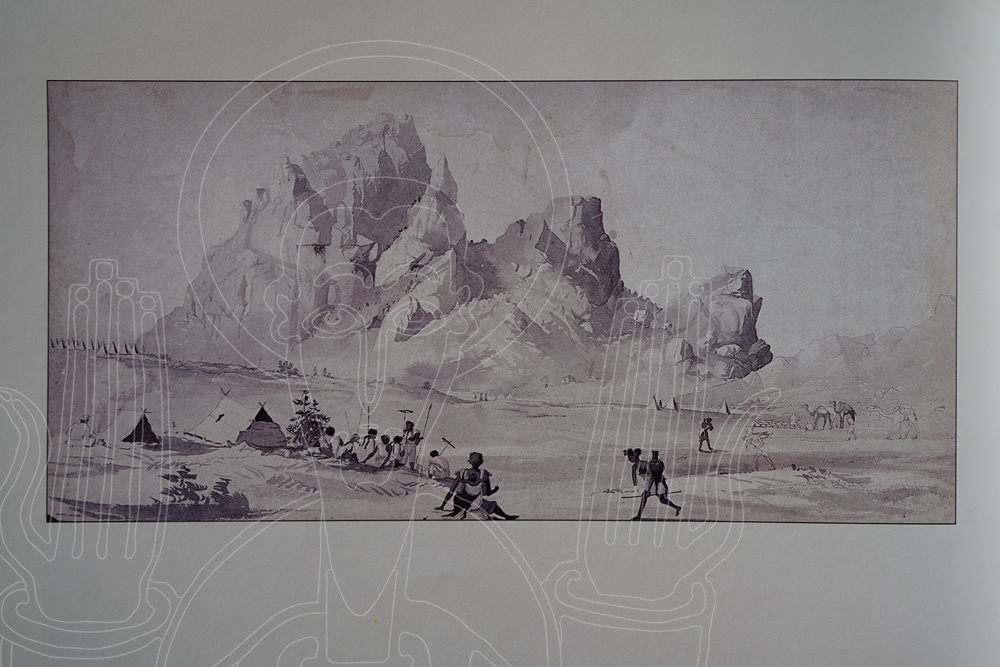
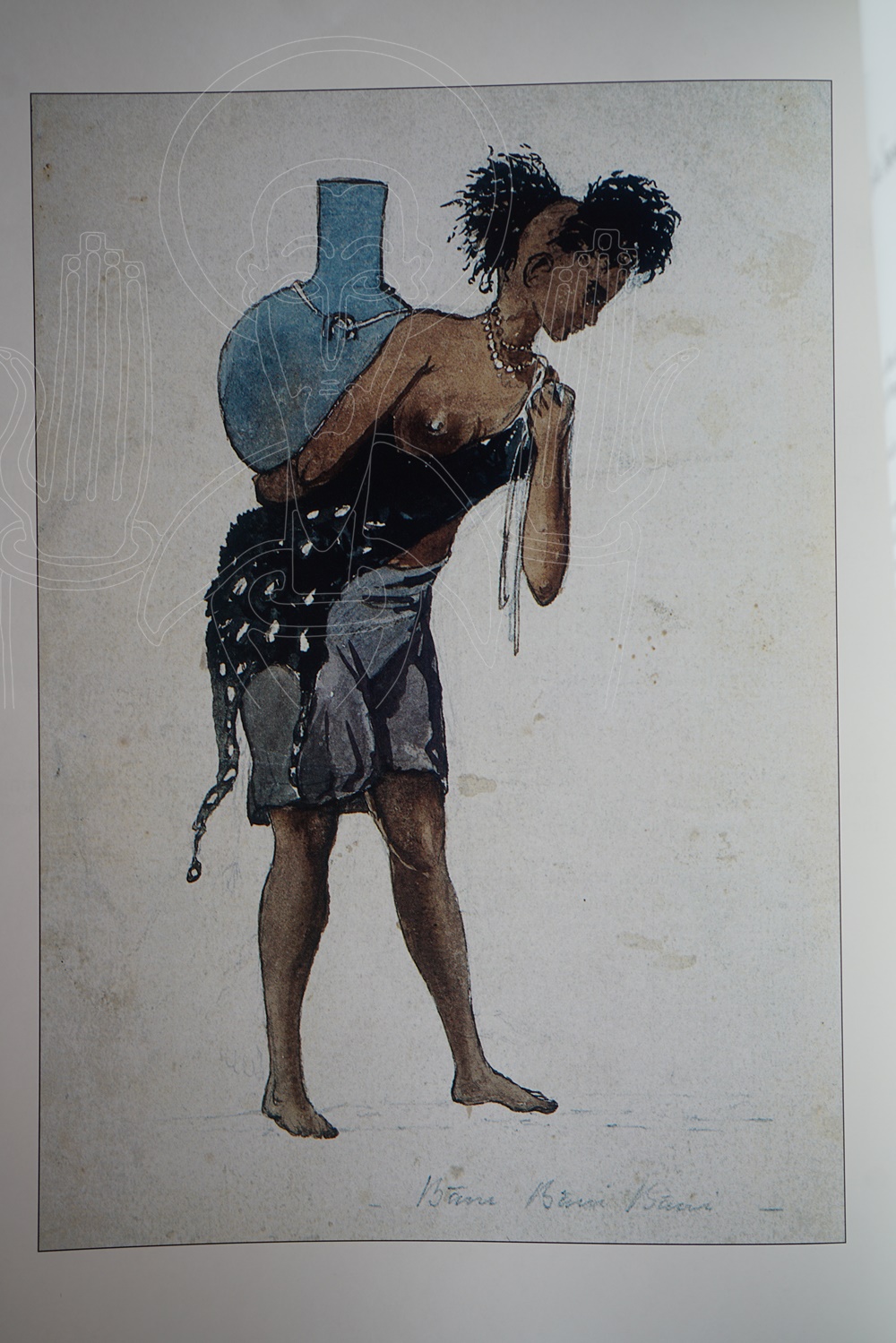
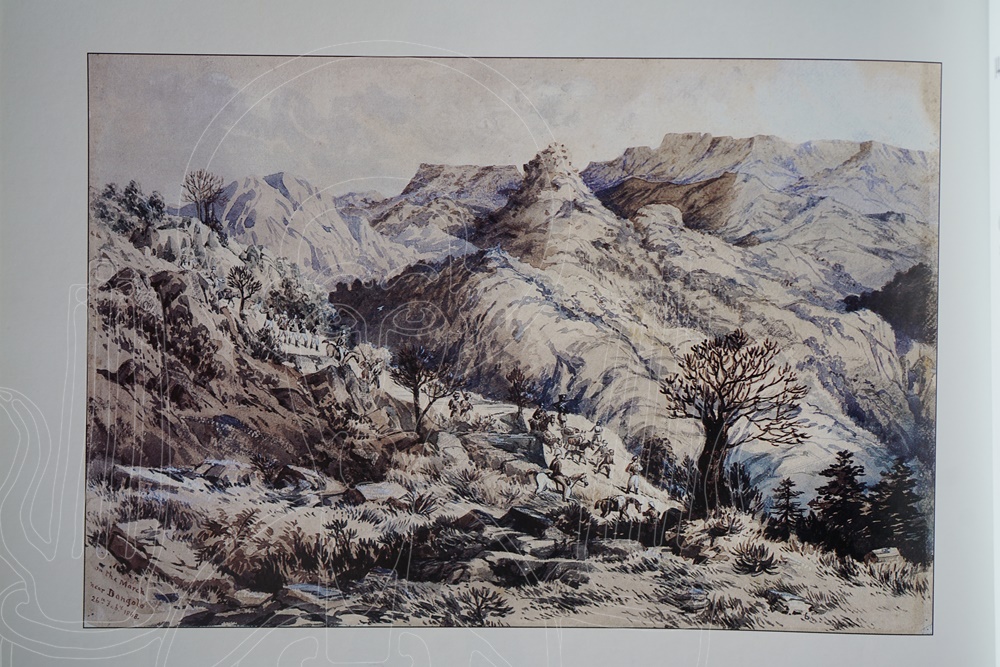
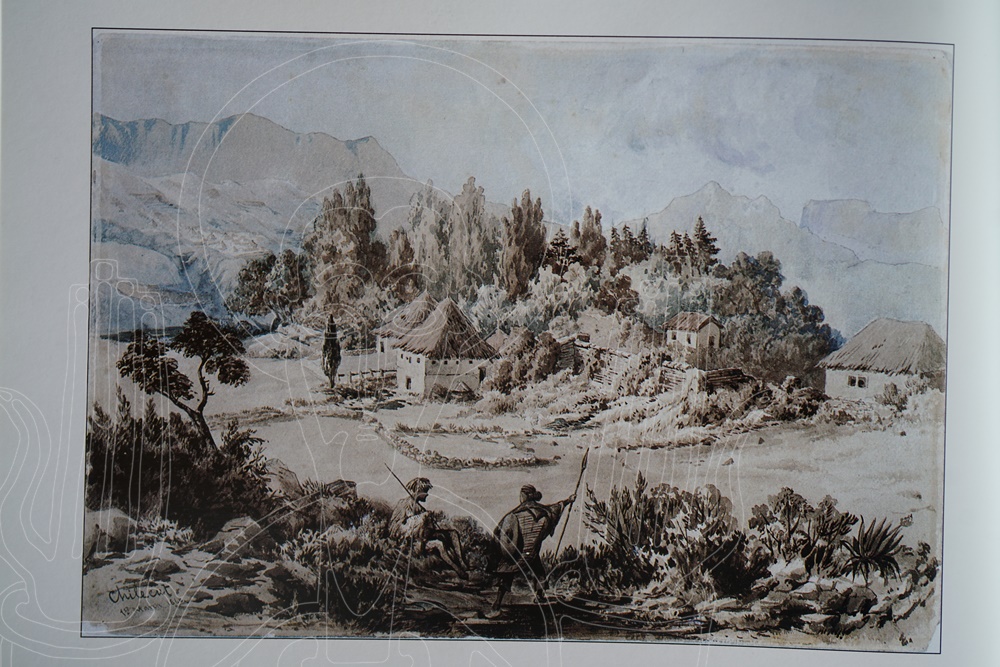
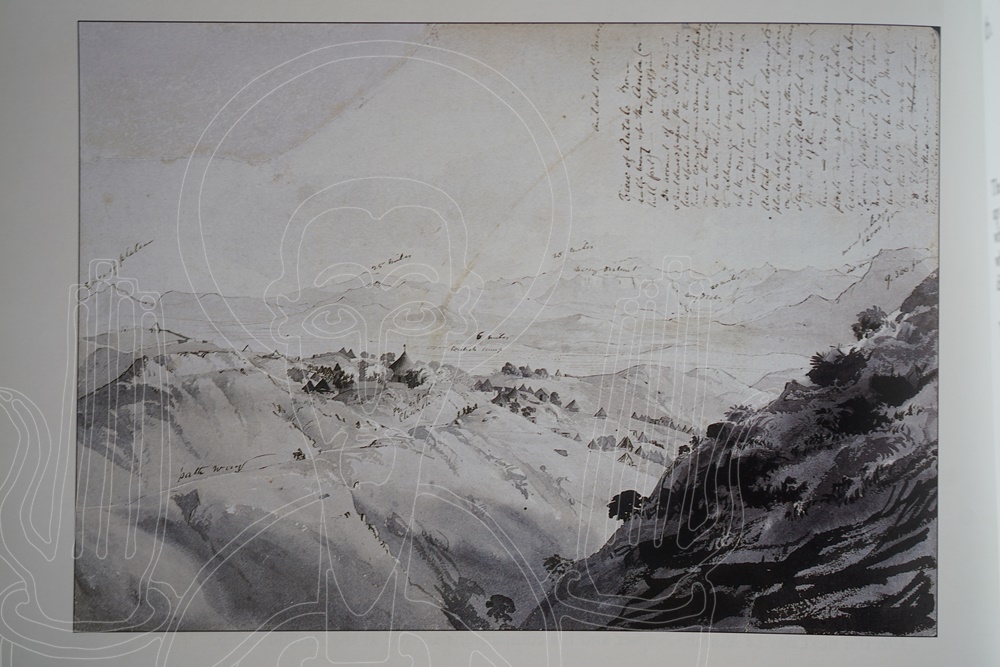
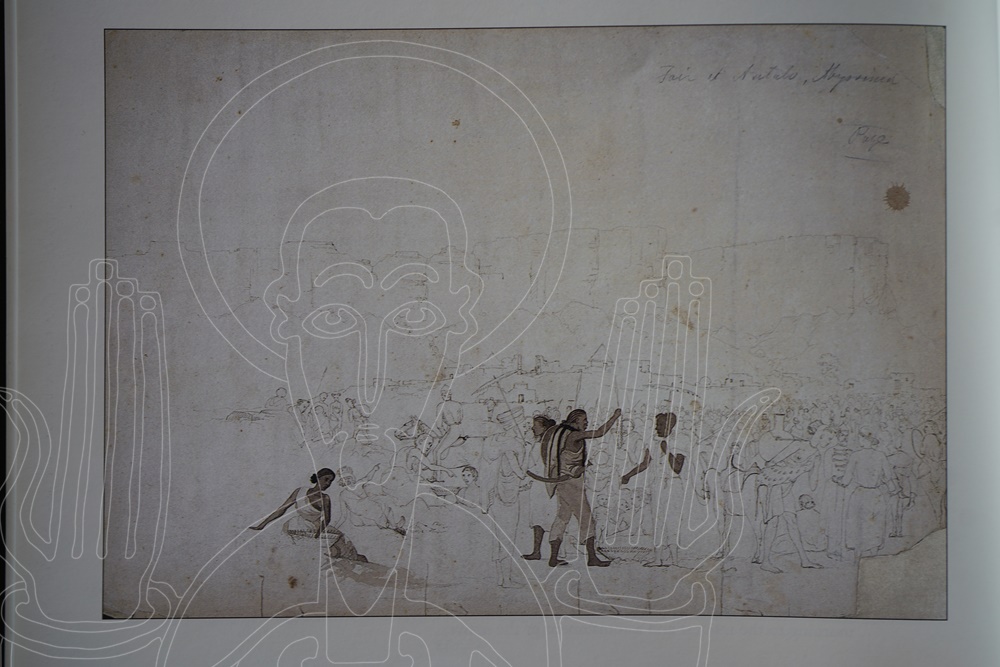
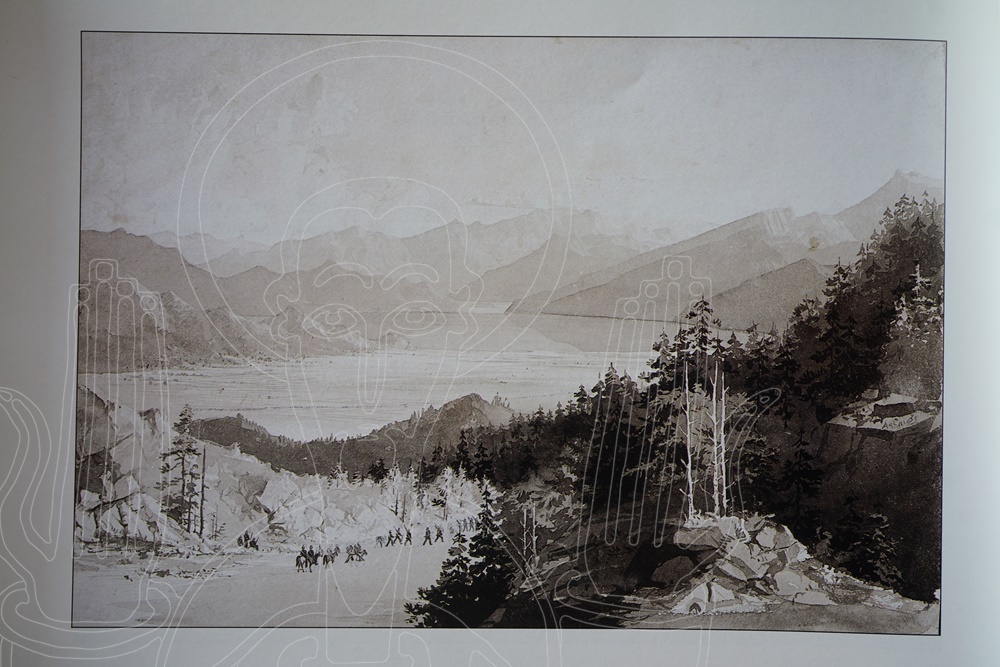
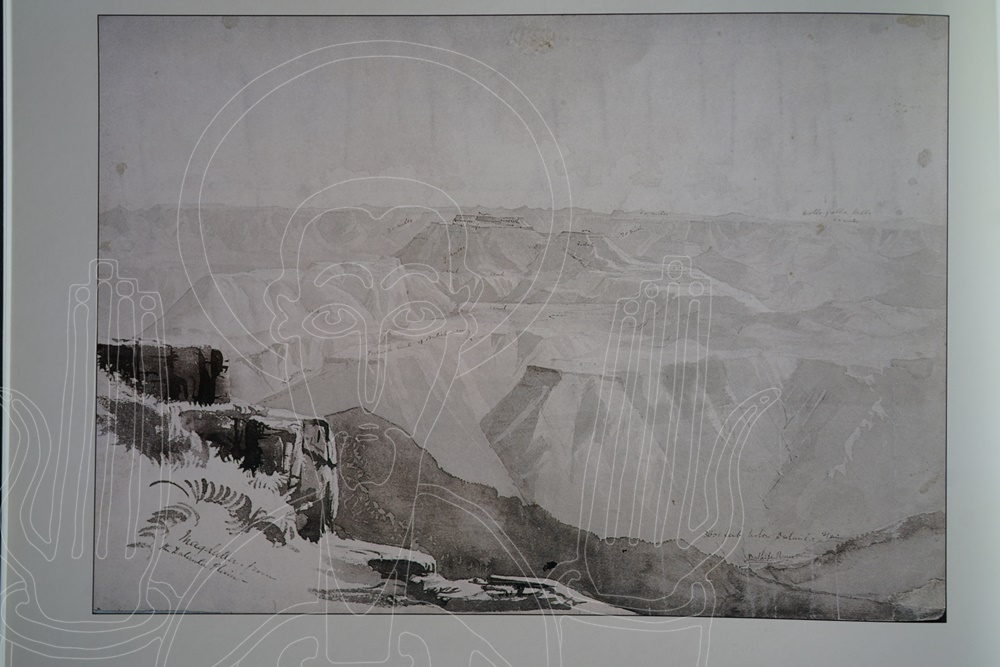
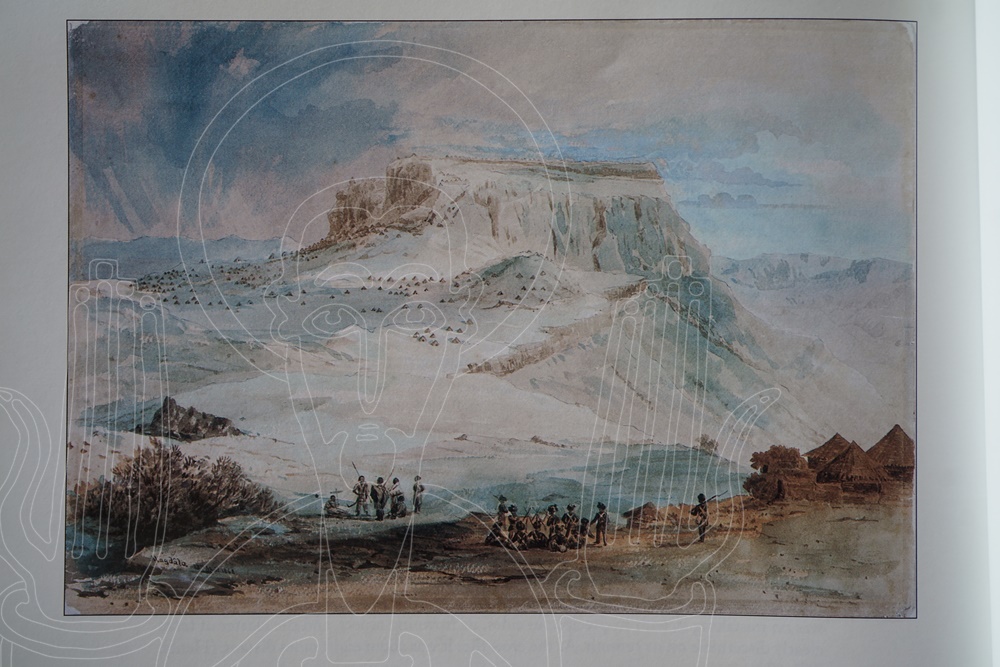
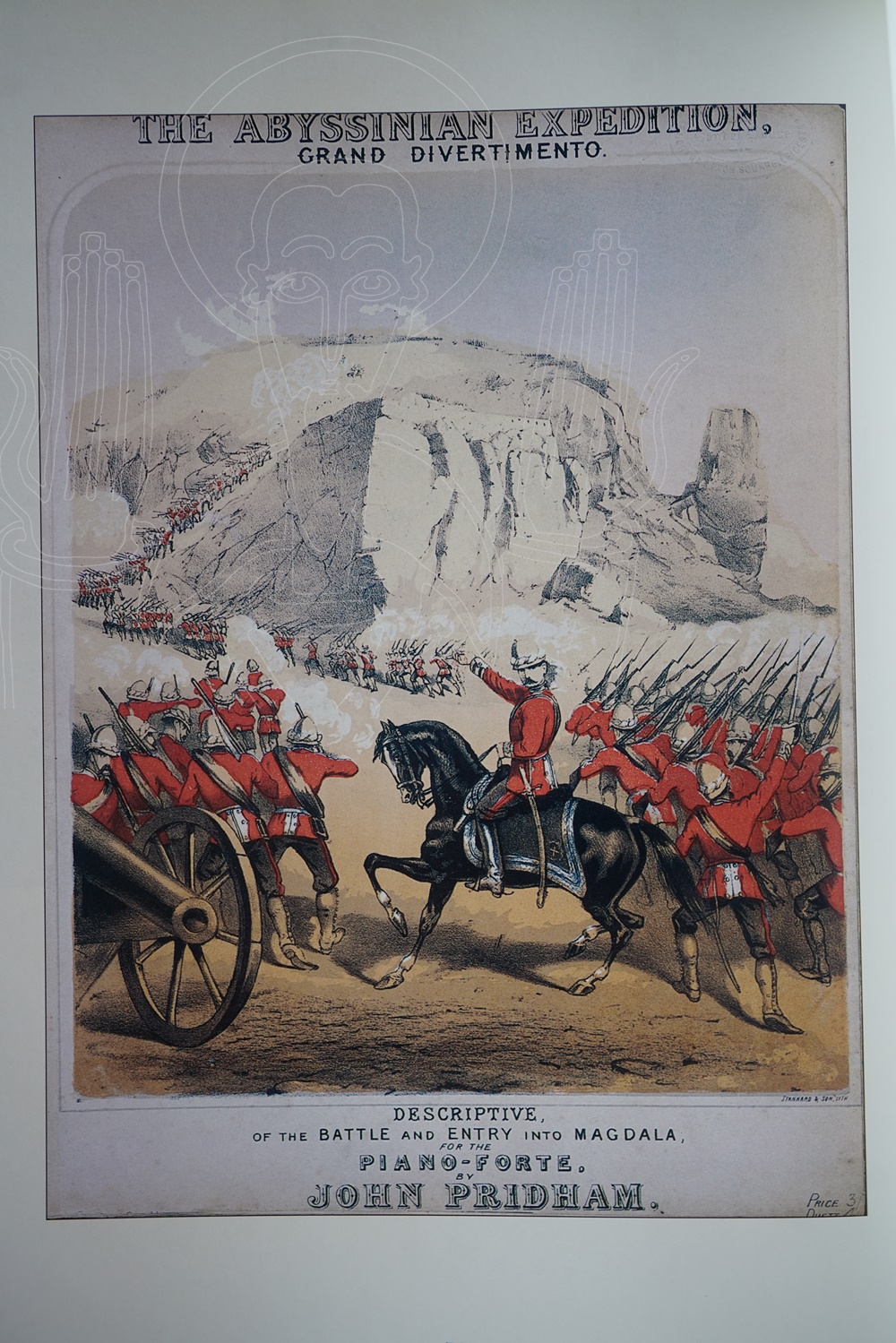
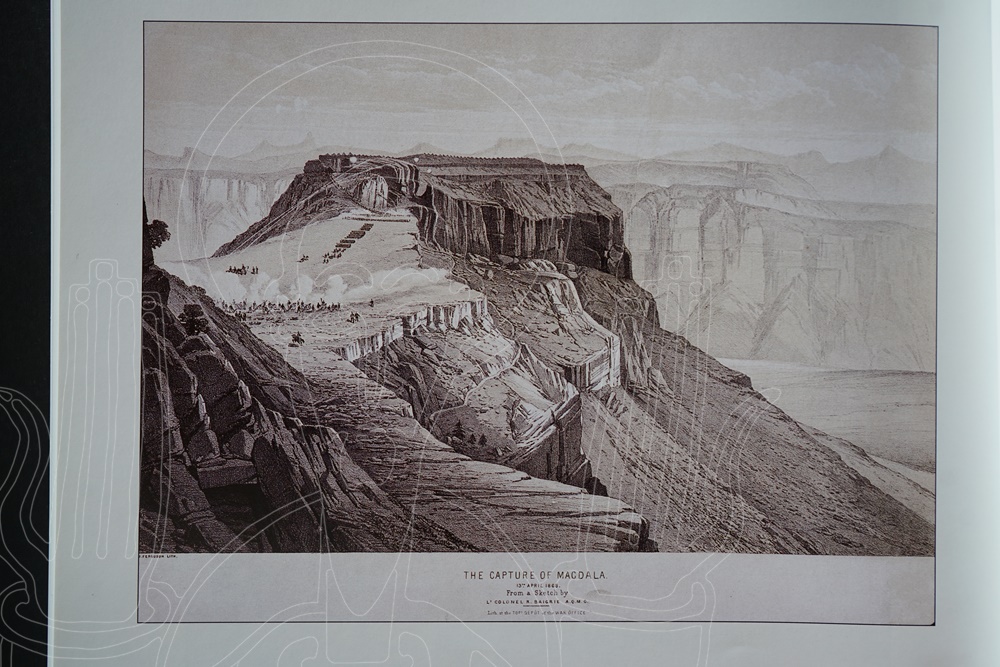
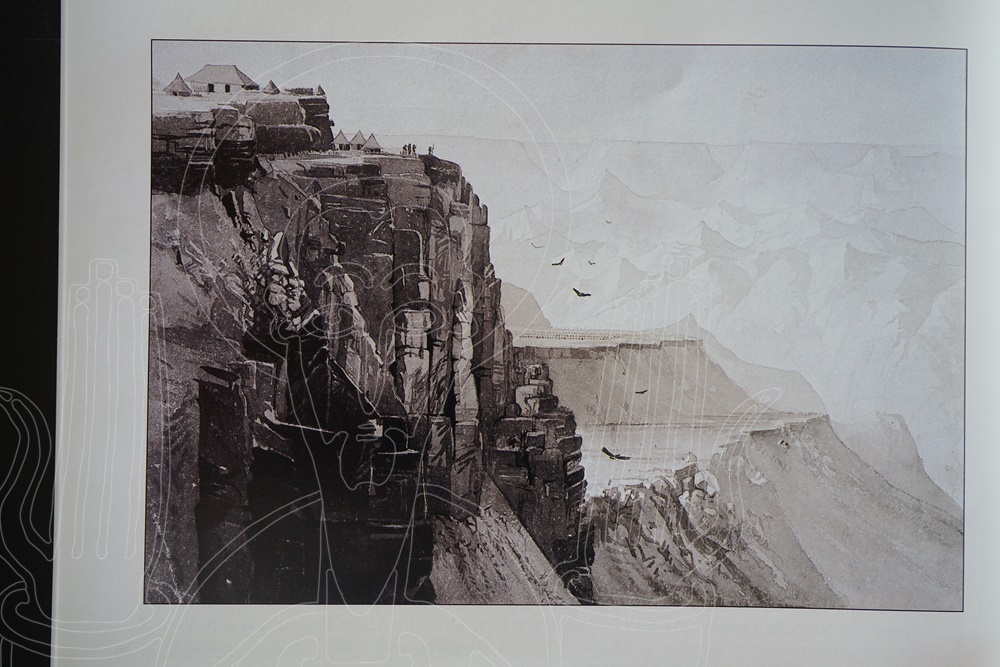
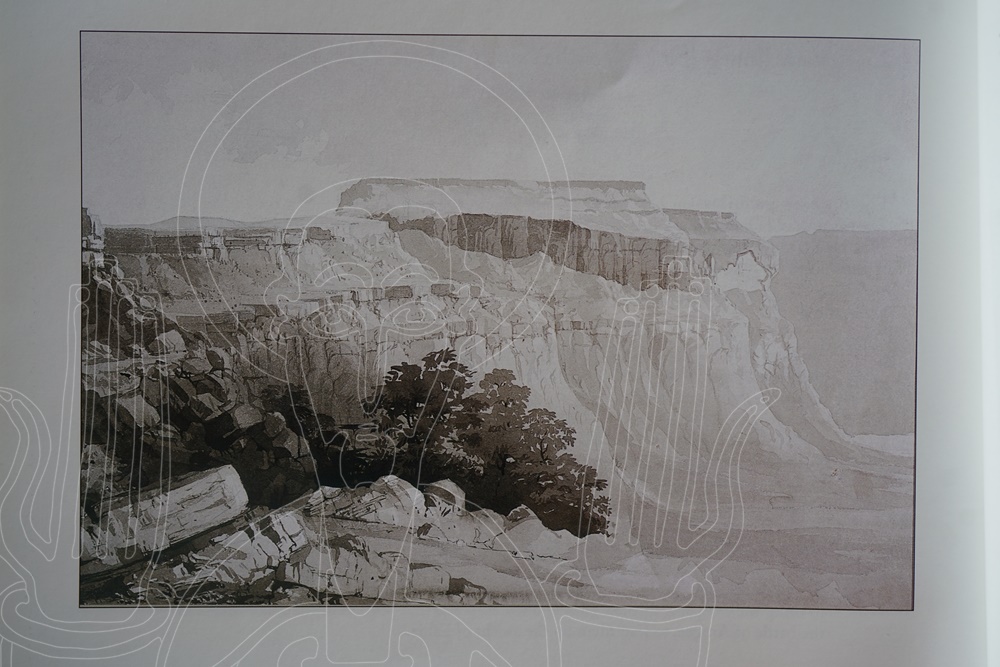
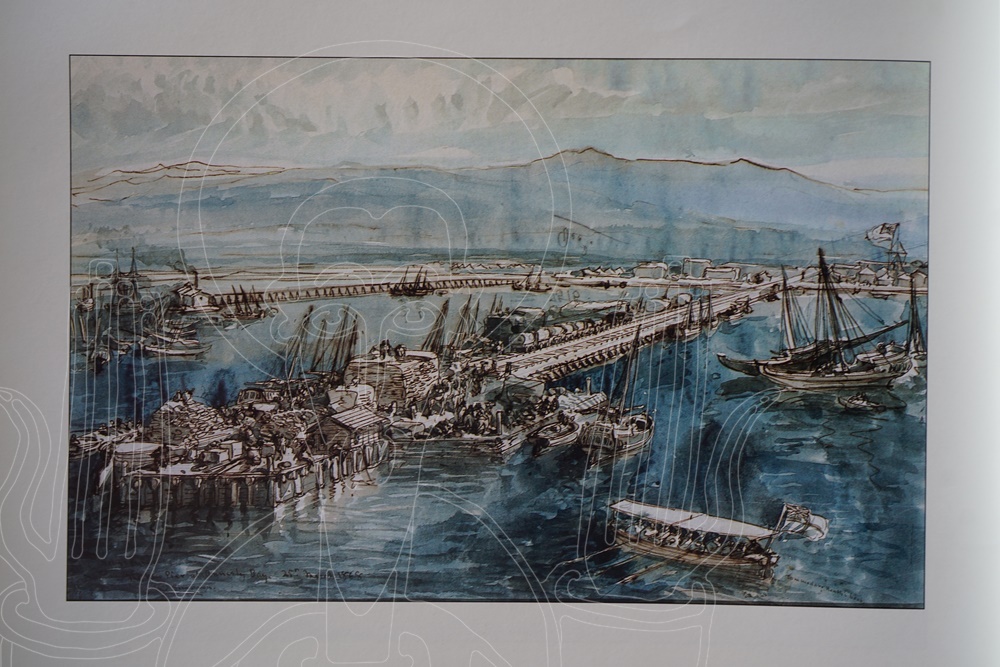
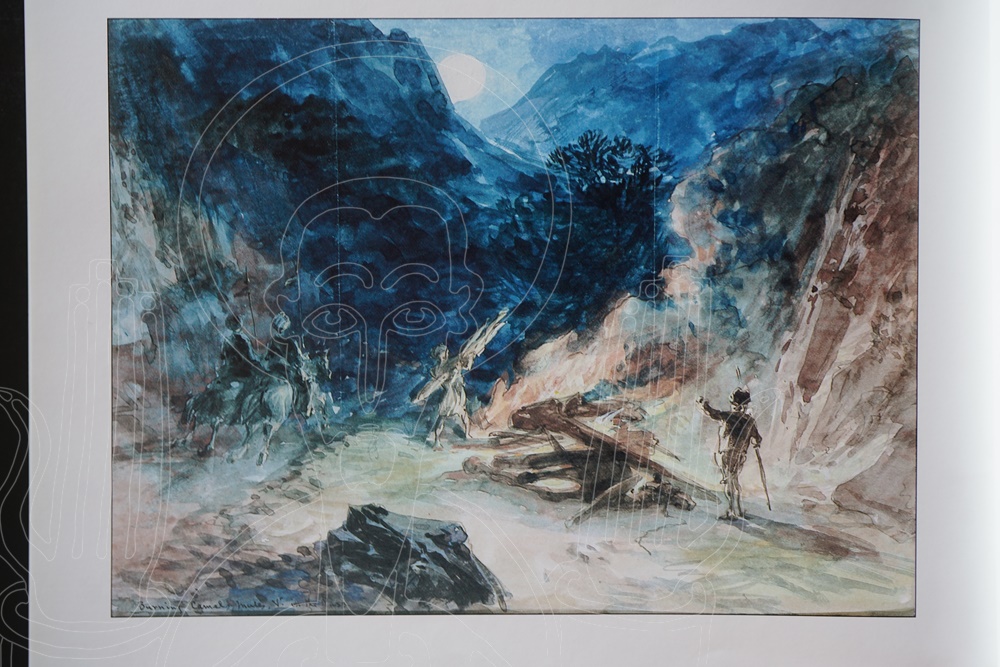
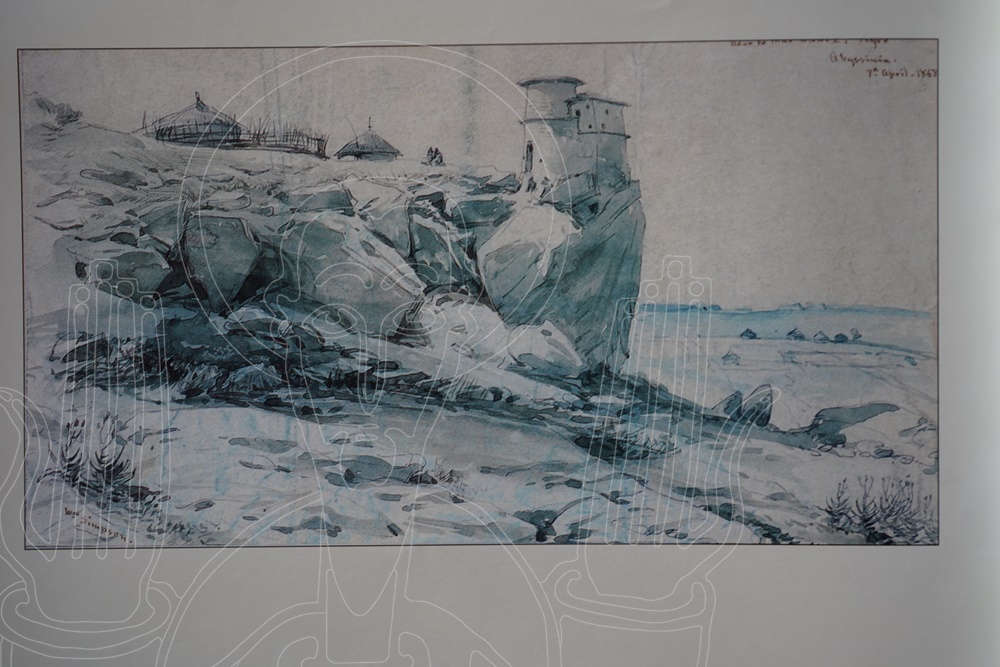
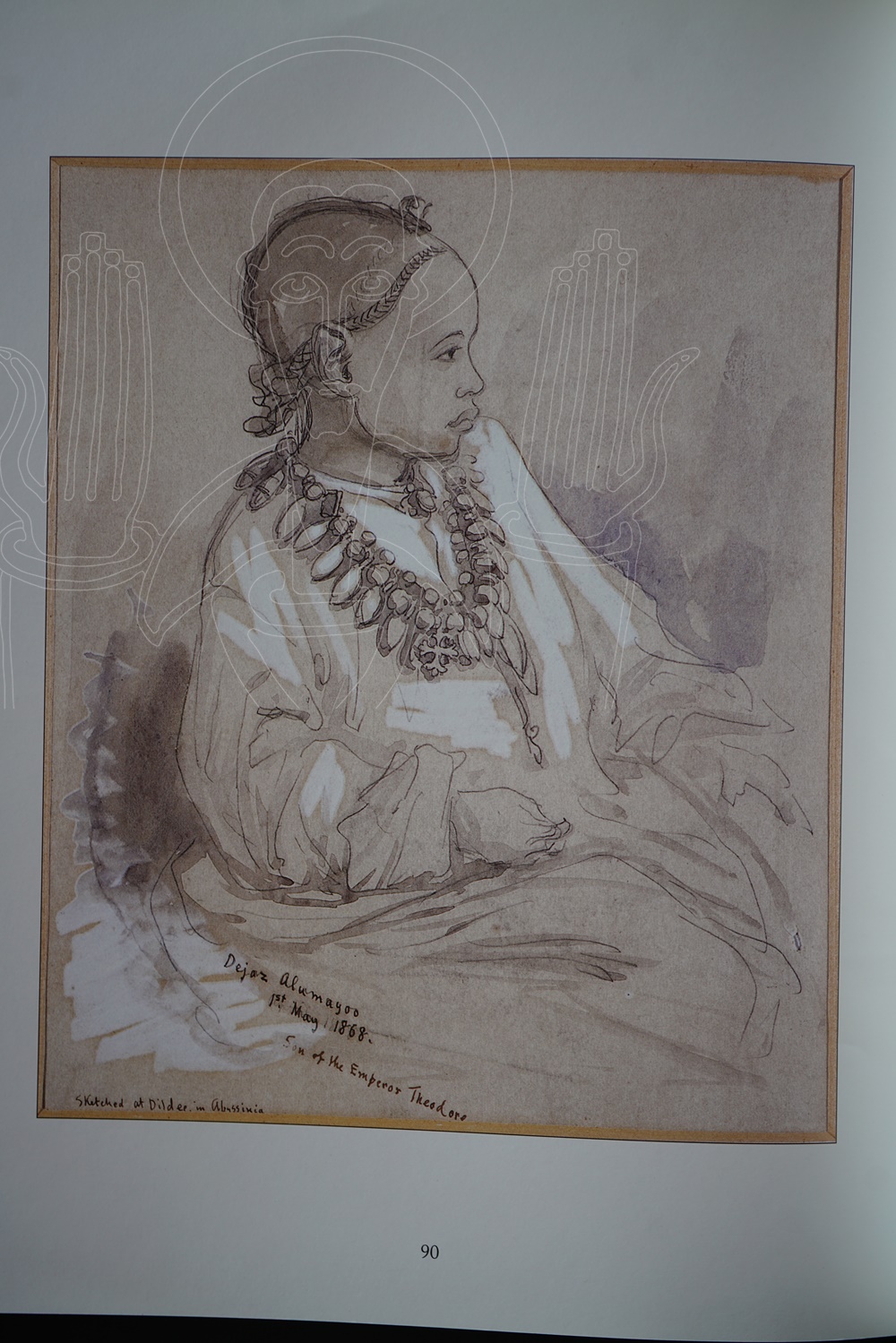
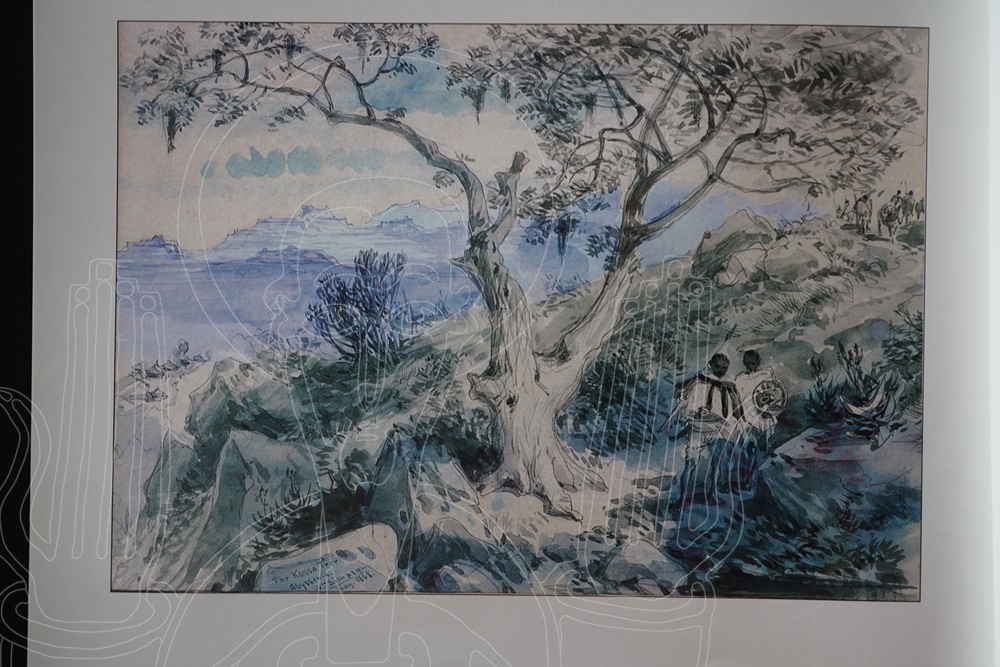
Édition
Éditeur : Tsehai
Lieu : Hollywood
Année : 2003
Langue : anglais
Références
Réf. Biblethiophile : 004569
Réf. UGS : 91190000
Première entrée : 1867
Sortie définitive : 1868
COLLATION :
96 p., ill.
En savoir plus
Selon biblethiophile
En 1999, le collectionneur américain Frederic Alan Sharf[1] acquiert le manuscrit du journal de William Simpson, envoyé par l’Illustrated London News en Éthiopie couvrir l’expédition punitive britannique de Napier contre Tewodros II. Avec l’aide de Richard Pankhurst, entre autres, il le publie chez Tsehai en 2002 sous le titre Diary of a Journey to Abyssinia 1868. Il renouvelle l’expérience pour les dessins du major Robert Baigrie qui ont rejoint sa collection en 1998. Le titre du catalogue de l’exposition tenue au McMullen Museum of Art, Boston College, en 2003 est quelque peu prétentieux : Abyssinia, 1867-1868 : Artists on Campaign. Hormis les œuvres de Baigrie appartenant à Sharf, l’incontournable bibliophile Humphrey Winterton met à disposition du commissaire de l’exposition quatre aquarelles du capitaine Adam George Forbes Hogg. Quant à Hugh Bett, le directeur de Maggs Bros, le fameux antiquaire londonien, il prête le portrait du Dejaz Alamayou par William Simpson daté du 1er mai 1868. Il est regrettable que le Colonel Cornelius Francis James, et d’autres, n’aient pas rejoint ces « artistes en campagne ».
Après la préface de la directrice du McMullen Museum of Art, Nancy Netzer, Frederic Sharf se charge de l’introduction et des biographies de Baigrie et Hogg. David Northrup dresse un portrait de l’histoire de l’Éthiopie, de 1306 à 1974 selon le titre. La présentation de l’expédition punitive britannique échoit à Richard Pankhurst. La bibliographie et les quelques citations de sources rendent l’ouvrage tout à fait exploitable. Mais, sans surprise, ce sont les reproductions des aquarelles qui constituent l’intérêt du catalogue. Pas uniquement ! L’originalité des pages 34 et 35 et des légendes des aquarelles apporte des informations inédites. Le détendeur des originaux s’est en effet démené pour dater les dessins et retrouver leur publication, une approche remarquable. Il peut par conséquent affirmer que plus de 30 dessins de Baigre sont reproduits dans The Abyssinian Expedition de Roger Acton publié par The Illustrated London News et que l’éditeur et le graveur ont pris quelques libertés. Il serait intéressant de confronter les aquarelles originales aux gravures et ainsi préciser l’influence qu’ont eue le graveur et l’éditeur.
Abyssinia, 1867-1868 : Artists on Campaign est bienvenu en offrant au public et aux chercheurs des illustrations de première main de l’Éthiopie de 1868. La forme utilisée pour présenter les aquarelles et le soin scrupuleux apporté à la rédaction des légendes sont des exemples que de nombreuses études universitaires devraient suivre.
Tableau synthétique des illustrations
Tableau synthétique des illustrations
| Illustration | N° | Descriptif | Artiste | Complément |
|---|---|---|---|---|
 | 1 | Sharf et ali, Abyssinia, 1867-1868: Artists on campaign: Surveying Camp at Weah at the Mouth of the Tekonda Pass, by Robert Baigrie | Robert Baigrie | publiée ILN 30 October 1867 |
 | 2 | Sharf et ali, Abyssinia, 1867-1868: Artists on campaign: Reconnoitring Up the Hadoda Pass, by Robert Baigrie | Robert Baigrie | |
 | 3 | Sharf et ali, Abyssinia, 1867-1868: Artists on campaign: Group of Shohos at the Hamhamo Spring, Tekonda Pass, by Robert Baigrie | Robert Baigrie | |
 | 4 | Sharf et ali, Abyssinia, 1867-1868: Artists on campaign: Portrait of a Danakil Warrior, by Robert Baigrie | Robert Baigrie | |
 | 5 | Sharf et ali, Abyssinia, 1867-1868: Artists on campaign: Deema, Third Halting Place Up the Tekonda Pass, by Robert Baigrie | Robert Baigrie | |
 | 6 | Sharf et ali, Abyssinia, 1867-1868: Artists on campaign: Tubboo, Fourth Halting Place Up the Tekonda Pass, by Robert Baigrie | Robert Baigrie | |
 | 7 | Sharf et ali, Abyssinia, 1867-1868: Artists on campaign: Pier and Landing Place at Zoulla, Annesley Bay (23 November 1867), by Robert Baigrie | Robert Baigrie | publiée ILN 04 January 1868 |
 | 8 | Sharf et ali, Abyssinia, 1867-1868: Artists on campaign: Senafe Pass Near Rayry Guddy, by Robert Baigrie | Robert Baigrie | |
 | 9 | Sharf et ali, Abyssinia, 1867-1868: Artists on campaign: First View of the Abyssinian Highlands, by Robert Baigrie | Robert Baigrie | |
 | 10 | Sharf et ali, Abyssinia, 1867-1868: Artists on campaign: Looking Down Senafe lass After Leaving Rara Guddy, by Robert Baigrie | Robert Baigrie | inédite |
 | 11 | Sharf et ali, Abyssinia, 1867-1868: Artists on campaign: View of the Abyssinian Plateau at Senafe, Looking Towards Adowa, by Robert Baigrie | Robert Baigrie | |
 | 12 | Sharf et ali, Abyssinia, 1867-1868: Artists on campaign: Sketch in Senafe Camp, Abyssinia: View from my Tent Door, by Robert Baigrie | Robert Baigrie | |
 | 13 | Sharf et ali, Abyssinia, 1867-1868: Artists on campaign: Water Girl at Senafe [study for larger drawing], by Robert Baigrie | Robert Baigrie | |
 | 14 | Sharf et ali, Abyssinia, 1867-1868: Artists on campaign: On the March Near Dongolo, 26 February 1868, by A. G. F. Hogg | A. G. F. Hogg | |
 | 15 | Sharf et ali, Abyssinia, 1867-1868: Artists on campaign: Chelicut (Chilecut) – 1st March 1868, by A. G. F. Hogg | A. G. F. Hogg | |
 | 16 | Sharf et ali, Abyssinia, 1867-1868: Artists on campaign: View of Antalo from Half Way Up the Amba (or hill post), by Robert Baigrie | Robert Baigrie | |
 | 17 | Sharf et ali, Abyssinia, 1867-1868: Artists on campaign: Fair at Antalo, Abyssinia, by Robert Baigrie | Robert Baigrie | publiée ILN 06 June 1868 |
 | 18 | Sharf et ali, Abyssinia, 1867-1868: Artists on campaign: View of Lake Askangi from the Makan Road, by Robert Baigrie | Robert Baigrie | |
 | 19 | Sharf et ali, Abyssinia, 1867-1868: Artists on campaign: Magdala from the Dalanta Plane, by Robert Baigrie | Robert Baigrie | publiée ILN 30 May 1868 |
 | 20 | Sharf et ali, Abyssinia, 1867-1868: Artists on campaign: Magdala, 13th April 1868, by A. G. F. Hogg | A. G. F. Hogg | |
 | 21 | Sharf et ali, Abyssinia, 1867-1868: Artists on campaign: The Storming of Magdala on Easter Monday, 13 April 1868, by Robert Baigrie | Robert Baigrie | publiée ILN 06 June 1868 |
 | 22 | Sharf et ali, Abyssinia, 1867-1868: Artists on campaign: The Capture of Magdala – April 13, 1868, by Robert Baigrie | Robert Baigrie | publiée ILN September 1868 |
 | 23 | Sharf et ali, Abyssinia, 1867-1868: Artists on campaign: View from a Point Near the King’s House, Magdala, by Robert Baigrie | Robert Baigrie | publiée ILN 13 June 1868 |
 | 24 | Sharf et ali, Abyssinia, 1867-1868: Artists on campaign: The Burning of Magdala, by Robert Baigrie | Robert Baigrie | publiée ILN 13 June 1868 |
 | 25 | Sharf et ali, Abyssinia, 1867-1868: Artists on campaign: Abyssinia: The New Pier at Annesley Bay, 25th March 1868, by William Simpson | William Simpson | |
 | 26 | Sharf et ali, Abyssinia, 1867-1868: Artists on campaign: Burning Camels, Mules, Etc. in the Pass, March 1868, by William Simpson | William Simpson | |
 | 27 | Sharf et ali, Abyssinia, 1867-1868: Artists on campaign: Near to Mai Wahiz, Tigre, Abyssinia, 7th April 1868, by William Simpson | William Simpson | |
 | 28 | Sharf et ali, Abyssinia, 1867-1868: Artists on campaign: Dejaz Alamayou, 1st May 1868, Sketched at Dildee, Abyssinia, by William Simpson | William Simpson | |
 | 29 | Sharf et ali, Abyssinia, 1867-1868: Artists on campaign: The Kosso Tree, Abyssinia, May 1868, by William Simpson | William Simpson |
Biblethiophile, 09.11.2024, complété 25.01.2025.
Selon l’éditeur
Featuring watercolors and drawing from the British Expedition under Sir Robert Napier by various artists, Abyssinia, 1867-1868 offers an informative text that makes the land of the Abyssinians come alive. An essential historic document, the book offers fresh insight into British perceptions of 19th century Ethiopia and the military expedition against King Tewodros (Theodore) II.
Selon Achamyeleh Debela
Achamyeleh Debelais a Professor of Art and Computer Graphics at North Carolina Central University in Durham, North Carolina.
Via the illustrations of soldier artists of an era of adventurous expeditions comes alive the rugged and taunting scenes of the land of the Abyssinians. Filled with handsomely crafted water color illustrations and drawings by artists Robert Baigrie and a few pieces by William Simpson and an equally authoritative and informative introductory text by Frederick A. Sharf, Professor David Northrop and Professor Richard Pankhurst, Abyssinia, 1867-1868: Artists on Campaign is a fascinating tableau of an important era. An anecdote of military expedition adventures, war booties, and heroes and heroines gives an additional, if not a new, perspective to a period in the history of European imperialism and the colonial invasion of Africa by Europe. Narrative notes accompanied with each illustration allow for contextual analysis of the illustrations. This same description also reveals the existing attitude as manifested with illustration No. 4 Portrait of a Danakil Warrior. Overall the book is an essential historic document. Especially it is important for it contains a body of work by artists Robert Baigrie and William Simpson. Both artists have actually participated in the campaign and have made a visual record a magnificent landscape along with the historic Napier expedition to Ethiopia and his encounter with the great Emperor Thewodros of Ethiopia.
Source: site de l’éditeur, consulté le 09.11.2024
Selon Raymond Silverman
Raymond Silverman, Professor of Art History and Afro-American and African Studies, University of Michigan. Author of Ethiopia: Traditions of Creativity.
Artists on Campaign is a wonderful companion to the recently published diary of Illustrated London News war correspondent William Simpson. The twenty-nine reproductions of watercolors and drawings, and the authors’ commentaries concerning the context in which they were produced, offer fresh insights into British perceptions of nineteenth-century Ethiopia and the celebrated military expedition against Tewodros II.
Source: site de l’éditeur, consulté le 09.11.2024
Selon Esseye G Medhin
Esseye G Medhin is an independent scholar. He is an artist, art historian and founder of Debre Hayq Ethiopian Art Gallery at www.ethiopianart.org.
This book, the second of its kind by Tsehai Publishers and Distributors, examines a complex mix of art/illustration, and military and political trends of 19th century British imperialism. It is a book rather than mere catalogue of a show. Both books deal with Atse Tewodros II, the first African King who took British citizens as hostages. Despite their shortcoming and imperial ideology, the illustrations command attention by reason of their historical significance. Any one interested in that period of history will probe into it by seeing eyewitness accounts of the military artists/illustrators works and overviews by distinguished historians.
Source: site de l’éditeur, consulté le 09.11.2024
Selon Ian Campbell
Ian Campbell is an Economist and Cultural Resources Specialist at The World Bank in Washington. He writes articles on Ethiopian iconography, architecture and cultural history.
Although many of the works on show in the exhibition catalogued in this superb publication appeared at the time in the Illustrated London News, for most readers this will be their first opportunity to see them in color. Indeed, several of the sketches have never before been published in their original form notably William Simpson’s drawing of Prince Alemayehou, which was executed only a few days after the death of his father, the Emperor Tewedros, and of whom very few images have been handed down to us. Readers are also treated to a number of fascinating tidbits, such as the methods practiced by publishers’ studio staff to enhance landscape sketches with the addition of human figures, and many will be intrigued to learn of the ‘cut and paste’ origins of the graphic cover used to illustrate John Pridham’s musical composition commemorating the battle.
Professors Pankhurst and Northrup are to be congratulated not only for a succinct and readable presentation of the historical background, but for their insight into the relationship between Ethiopia and the outside world prevailing in the mid-19th century. Whereas previous writers have tended to portray events leading up to the ‘Abyssinian difficulty’ through European eyes; the reader can now begin to see them in the Ethiopian context. It is a sad irony that it is only in the 21st century that we begin to see that Tewedros’ cultural values had more in common with the pre-Renaissance world of Prester John than with post-industrial revolution Britain. Clearly the British government’s outrage at the imprisonment of its consul, and Napier’s subsequent refusal to accept anything less than total surrender “even after the release of the prisoners“ would not have been anticipated or even understood by an essentially medieval monarch.
Both Ethiopianists and lovers of military art will be grateful to Frederic Sharf for a unique and important publication. Following hard on the heels of Diary of a Journey to Abyssinia, this carefully prepared exhibition of paintings and drawings of Britain’s Abyssinia expedition fills some significant gaps in our knowledge of 19th century Ethiopia.
Source: site de l’éditeur, consulté le 09.11.2024
[1] https://brezniakfuneraldirectors.com/obituary-archive/frederic-a-sharf/ consultée le 20.09.2024